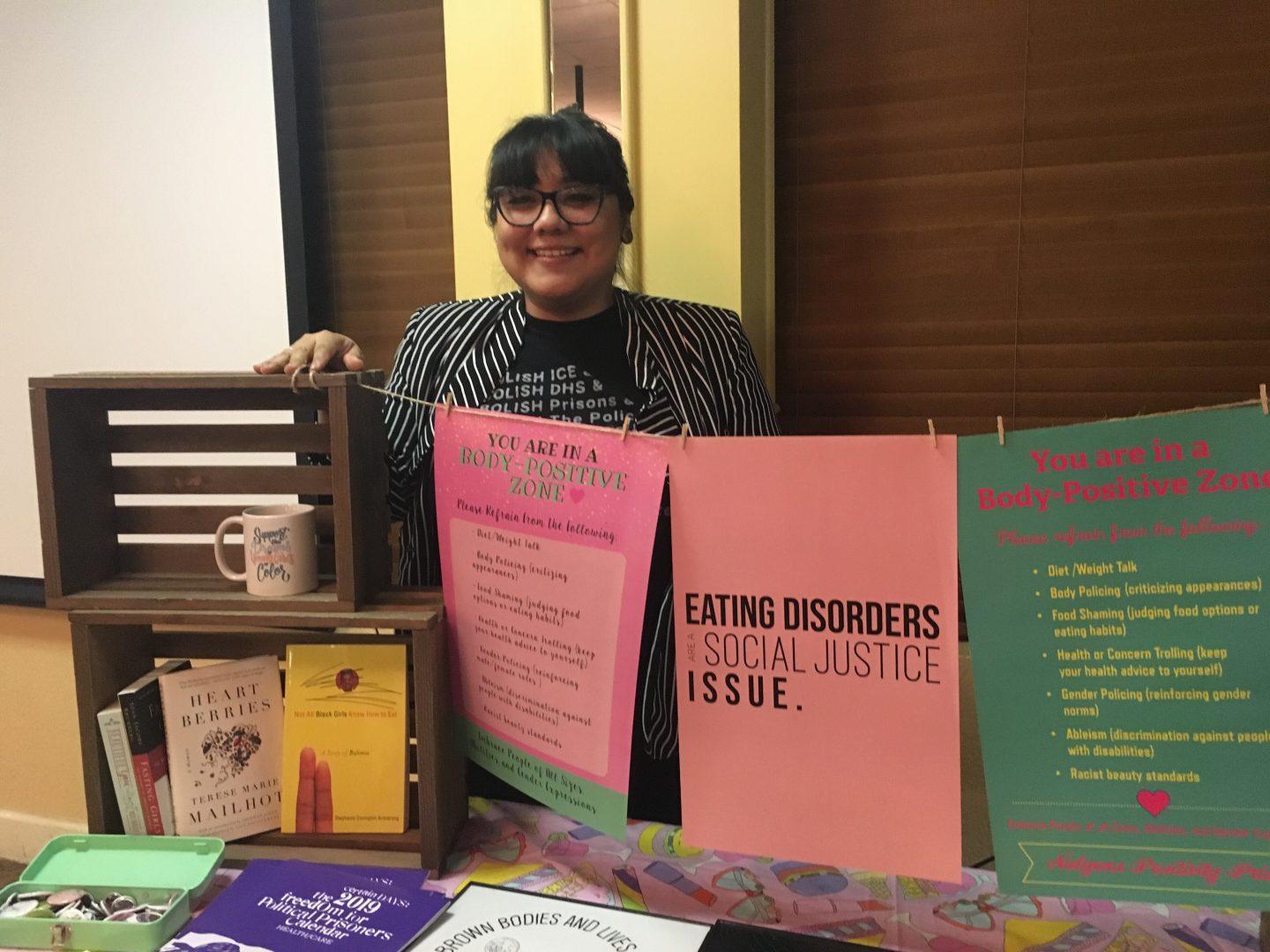Nalgona Positivity Pride is a multifaceted Xicana-indigenous body-positive organization that provides education on intersectional eating disorders and community-based support to cope with troubled eating and distorted body image.
Gloria Lucas brought to the Fresno State campus the event forum in which people of all genders could share and embrace the issues that may have chained them.
After dealing with an eating disorder in the dark, Lucas said she saw the need to implement an organization that would empower people of indigenous descent to uncover the impacts of colonialism, social oppression and historical trauma.
With over 70,000 followers on Instagram, there are many lessons offered by Lucas’ presentation.
Lucas challenges everyone to examine the way beauty is perceived and to question the standards of beauty that have been culturally embedded.
Here are the seven things that our mommas may not have taught us, according to Lucas, but she strives to emphasize:
People of color and indigenous people can develop eating disorders
According to Lucas, eating disorders have been portrayed as only applying to certain groups in society, leaving people of color and indigenous people misrepresented and to ultimately struggle alone.
“Second-generation Mexican-American women were the most acculturated and had the highest eating disorder patterns,” said Lucas referencing a study by the department of psychiatry at Harvard Medical School.
Some of those include little to no education on eating disorders, no accessible language and the heavily medicalized industry, said Lucas.
Binge eating is an eating disorder
Comelona, tragas bien mucho is derogatory in Spanish. It means, “You eat too much,” and often brings shame to young Mexican girls who are told that by family. Not only do Mexican households have a problem understanding eating disorders, it’s our society, she said.
Binge Eating Disorder (BED) was not formally recognized by the Diagnostic and Statistical Manual of Mental Disorders 5th Edition until 2013, and about 2.3 million people suffer from this disorder, according to the National Eating Disorders Association.
There is a lot of “shame” attached to BED, said Lucas, which could be why people have kept it in the shadows.
Eating disorders are very complex conditions
Eating disorders are not easily understood, but, according to Lucas, people are seven to 12 times more likely to develop them if someone close to them has an eating disorder.
It’s not your obligation to fulfill your mother’s definition of ‘beautiful’
Beauty is a man-made concept and a sexist expectation, according to Lucas.
“When I gained weight, I felt that I could no longer be feminine,” she said.
Beauty is not set in stone, said Lucas, and she pointed to the ways fashion has evolved over the years. However, Lucas strives to teach people to find their own beauty.
Colonialism has impacted the way we view our bodies
Indigenous bodies have been described as sinful, dirty, incomplete, disposable, submissive, dehumanized and bodies that can endure extreme physical labor, said Lucas.
“Because of Catholicism, there’s this idea that we are sinful and have to redeem ourselves,” she charged.
According to Lucas, Latina women are either hypersexualized, such as Salma Hayek, or are portrayed as middle-aged brown women with no sexuality.
The silenced traumas and forgotten stories
“Our people have made it by being on survival mode,” said Lucas. “In my family, we don’t talk about emotions.”
Lucas encouraged members of the audience to be understanding toward their mothers and odd coping mechanisms they may have because we have ideas of what silenced traumas they may carry in their hearts.
“There was no way our ancestors survived all of this [colonialism] and had healthy ways to cope with it,” said Lucas.
Your sexuality and your body are your own
“Our resiliency is well above average. If you are a person of color, we have a tremendous amount of resilience,” said Lucas.
She said she did not want to end the evening on a sad note. Instead, she shared her tips on radical self-love, such as being patient with yourselves and being extra kind; practicing ceremonies that involve your body (for example a bubble bath); and honoring your body when it changes.




